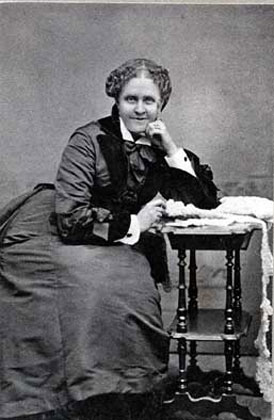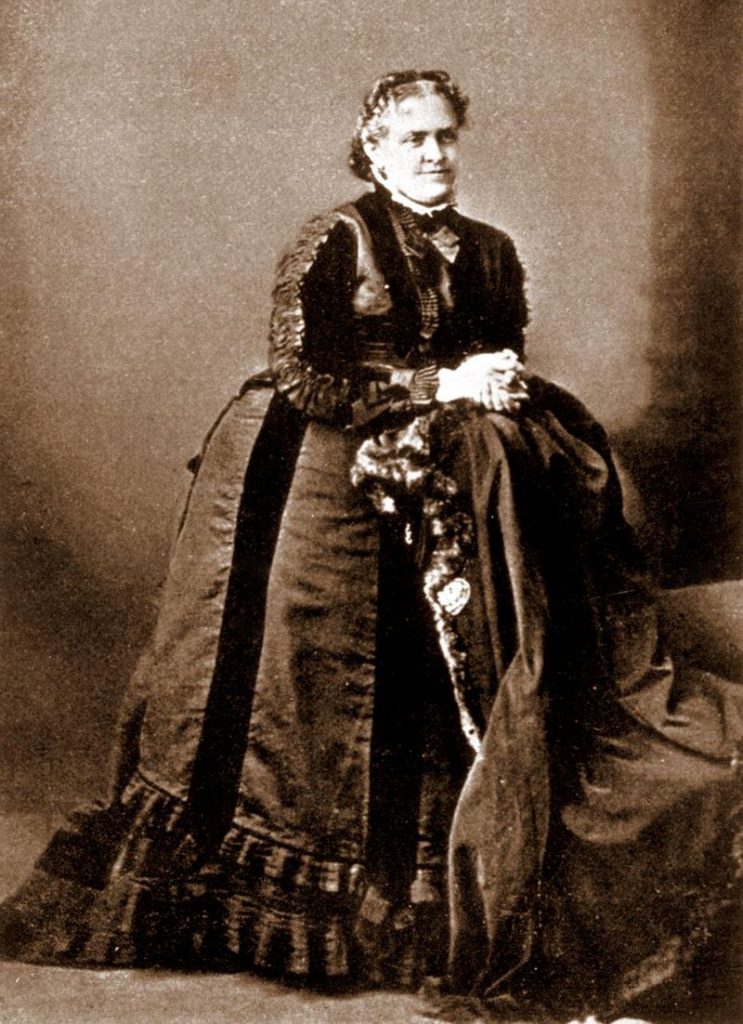Helen Maria Hunt Jackson was an American writer and activist. She advocated to improve the treatment of Native Americans. In her 1881 book, A Century of Dishonor, she wrote about injustices Native Americans faced. Jackson wrote a novel in 1884 dramatizing how the Native Americans were treated in Southern California called Ramona.

On October 15, 1830, Helen Fiske was born in Amherst, Massachusetts to minister, author, and professor Nathan Welby Fiske and Deborah Waterman Vinal Fiske. Helen had a sister Anne and two brothers, though both died in infancy.
In 1844, fifteen year old Helen lost her mother. Three years later, their father died as well. Helen’s father had been the one who provided financial support for her education but he arranged for her uncle to care for her when he died. Helen attended both Ipswich Female Seminary and a boarding school in New York City, the Abbott Institute. During this time, Helen attended school alongside future famous poet, Emily Dickinson, and the two became good friends. For the rest of their lives, they remained friends and corresponded. Very few letters the two sent to each other still survive.
Helen married Edward Bissel Hunt, a captain in the U.S. Army, in 1852 when she was twenty-two. The couple had two sons, though their son Merray Hunt died of brain disease in 1852 in infancy and her second sun Rennie Hunt died of diptheria in 1865. In 1863, Helen Hunt’s husband died in a military accident.
During the winter of 1873-74, Hunt spent her time in Colorado as she was needing rest in hopes of curing her tuberculosis. There, she met William Sharpless Jackson, who was a wealthy banker and railroad executive. The following year, the two married in 1875, Helen taking his name of Jackson.
After her family members had died, Jackson began writing. Her first novels were published anonymously under the initials of “H.H.” for Helen Hunt. She wrote poetry as well, and Ralph Waldo Emerson greatly enjoyed her poetry, often reading it aloud in public readings. Five of her poems were included in Parnassus: An Anthology of Poetry, which was published by Emerson in 1880. Jackson also published three novels in the No Name Series.
Jackson first became interested in the treatment of Native Americans in 1879 when she attended a lecture by Chief Standing Bear of the Ponca tribe in Boston. In his lecture, he spoke of how his tribe was forcibly removed from their reservation in Nebraska and then had to move to the Quapaw Reservation in Oklahoma. In Oklahoma, they were met with disease, a harsh climate, and poor supplies. Jackson was very upset about the way the government treated Native Americans. So she began investigating and publicizing what the government was doing. By creating petitions, she was able to raise lots of money and also wrote letters on behalf of the Ponca for the New York Times.
Soon, Jackson had become a prolific writer, and a fiery one at that. She and many federal officials engaged in heated correspondence and arguments regarding the injustices Native Americans were facing and had faced. Jackson specifically targeted Carl Schurz, the U.S. Secretary of the Interior. She described him as “the most adroit liar I ever knew.” Jackson continued to expose the government’s wrongdoings and violations of treaties made with Native American tribes and documenting corrupt officials in government.
Many newspaper editors supported Jackson and her work. They began to publish many of her reports. Jackson corresponded with the editor of the New York Independent, William Hayes Ward along with Richard Watson Gilder from the Century Magazine, and New York Daily Tribune publisher Whitelaw Reid.
The first book Jackson wrote under her real name was A Century of Dishonor, published in 1881. In the book, she condemned federal and state policies regarding Native Americans and chronologize the injustices Native Americans faced and a history of treaties broken by the government. She also called for the government to make significant changes and a reform in their policy towards Native Americans. “Look upon your hands; they are stained with the blood of your relations,” was a Benjamin Franklin quote she printed in red when she gave a copy of the book to each member of Congress.

Eventually, Jackson decided to go to southern California. She found herself interested in missions in the area and the Mission Indians. Jackson spent much of her time in Los Angeles, where she met the former mayor, Don Antonio Coronel. Coronel had also served as inspector on behalf of the Mexican government of missions. Jackson was inspired by Coronel’s accounts and instantly sprang to action. Hiram Price, the U.S. Commissioner of Indian Affairs, recommended that they appoint her as an agent for the Interior Department. So, Jackson was given the assignment of visiting Mission Indians to determine what lands should be purchased for them. Abbot Kinney, a US Indian agent, helped her as she travelled through southern California to document the conditions of the Mission Indians. Jackson hired a lawyer at one point to protect a family of Soboba Indians’ rights, as they were facing dispossession from their land.
By 1883, Jackson had completed her fifty-six page report on the Mission Indians. The report extensively recommended that the government provide them with relief. One recommendation was that the government purchase lands for the Mission Indians for reservations and schools. The U.S. Senate was able to pass a bill with her recommendations, though the bill did not pass in the House of Representatives.
From there, Jackson decided to write a novel in hopes of reaching more people. She and Coronel corresponded about the details of early California. Soon, she began outlining the novel. It wasn’t until she returned to New York that she began writing it in December of 1883. After three months, she completed her novel and originally gave it the title of In The Name of the Law, though it was published in 1884 as Ramona.
The novel was about a half indian half Scots orphan named Ramona who grew up in the society of the Spanish Californio. Ramona and Alessandro, her Indian husband, struggled to obtain their own land. Jackson based the characters on people she knew and the events were inspired by things she had witnessed. Ramona was an instant success and like Jackson had intended, was read by a much wider audience. It also contributed to tourism in southern California because many people wanted to see where the book had taken place.
Jackson was inspired by Ramona’s popularity and began planning to write a children’s story about Native Americans, though she died before it was completed.
On August 12, 1885, Helen Hunt Jackson died of stomach cancer in San Francisco, California. Her husband arranged to have her buried near Seven Falls overlooking Colorado Springs, Colorado on a one-acre plot. Later on, her remains were moved into Colorado Springs in the Evergreen Cemetery.